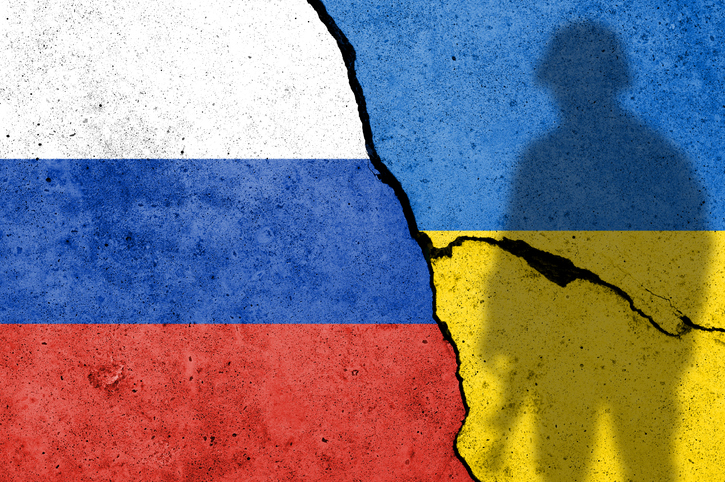

To ask “How does Ukrainian compare to Russian?” is to admit that you’ve heard of Russian but didn’t realize that Ukrainian was even a language. It is not your own fault, it’s a consequence of many years of linguicism.
To ask “How does Ukrainian compare to Russian?” seems so innocent and so curious and yet it is so tiring for Ukrainians to keep repeating the same thing over and over again—yes, they are similar in some of the lexicon and yet so different because we have 16 words for the word “to open” depending on what it is that we are opening, while Russian has one.
To ask “How does Ukrainian compare to Russian?” is to insinuate that languages can peacefully co-exist as siblings in the same East Slavic language family… as if languages are a pure linguistic phenomenon not intertwined with people, politics, and power.
If you ask “How does Ukrainian compare to Russian?,” be ready and willing to learn a new words like
linguicide, language suppression, banned language, linguicism, language status, linguistic inferiority
and events like
the Synod of the Russian Patriarchal Church prohibits printing and using the Ukrainian bukvar, an alphabet book, in 1769,
prohibition on translating books into Ukrainian,
banning of printing of Ukrainian spiritual and popular education literature,
banning of theatrical performances and printing of Ukrainian texts on sheet music,
limiting the use of Ukrainian in higher education,
Andropov’s order in 1983 to increase salaries of Russian language teachers.
If you ask “How does Ukrainian compare to Russian?,” be ready and willing to learn that, according to some Russian linguists, Ukrainian does not even hold the status of a language but has been reduced to a mere dialect of the peasant people, who are a bunch of rebels and farmers who can’t let go of their land. But they forgot that language is a dialect with an army and… Ukrainians do have an army.
If you ask “How does Ukrainian compare to Russian?,” be ready and willing to learn that the official language of the Ukrainian people was in the minority status for over 70 years, which eventually led to Russian being established as the official language of Ukraine in 1990.
If you ask “How does Ukrainian compare to Russian?,” be ready and willing to learn that children like me in the 1980s grew up with linguistic inferiority if they were not fluent in Russian, and when playing dolls, the cool dolls from the city spoke Ruskiy/русский and the peasant dolls from the village/село/selo spoke Ukrainian.
If you ask “How does Ukrainian compare to Russian?,” be ready and willing to learn that students like me never had a chance to contribute our knowledge in our native language because, in 1970, the Soviet government ordered for all dissertations and major theses to be written in Russian, thus distributing knowledge only to the Russian readers.
If you ask “How does Ukrainian compare to Russian?,” be ready and willing to learn of the centuries of regimes ruling over Ukraine trying to destroy its language over the span of 337 years, from 1654 to 1991, with 60 prohibitions in total.
To ask “How does Ukrainian compare to Russian?” Aren’t they very similar?
But no one asks in return, “How does English compare to German? How does French compare with Spanish?”
Because they don’t drag with themselves “disputed territory,” “conflict with Russia,” “we are a sovereign nation whose existence Putin denies,” “Donbas region,” “Eastern Ukraine,” “Russian troops massing at the eastern border”…
~~~~~~~~~
Free Ukrainian lessons: www.ukrainianlessons.com
Some information in this poem was taken from A Short Guide to the Linguicide of the Ukrainian Language by Euromaidan Press.
Ruslana A. Westerlund is an immigrant writer, linguist, speaker, and author of From Borsch to Burgers: A Cross-Cultural Memoir. In her memoir, she chronicles her journey of becoming a transcultural person spanning both worlds and forming her new ever-evolving identity as a proud Ukrainian American. In this poem, she addresses the various meanings behind the seemingly innocent question “How does Ukrainian compare to Russian?” and uses this poem to educate others. She believes that there is a lot of unlearning to be done around the topic of Ukrainian language, culture, and history, and she uses writing to help others unlearn and relearn. You can connect with her on Twitter @RuslanaWesterl.







